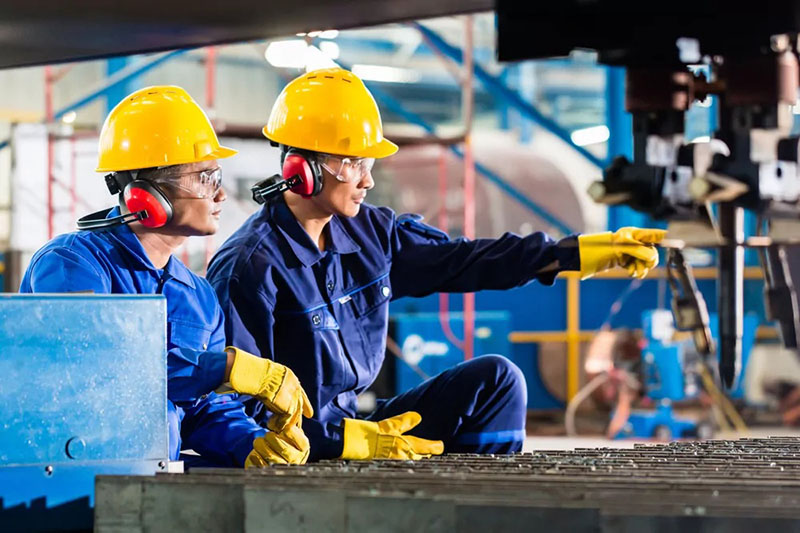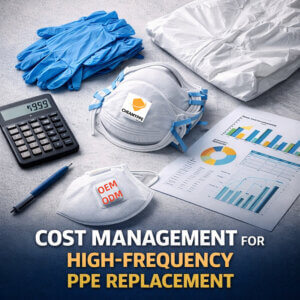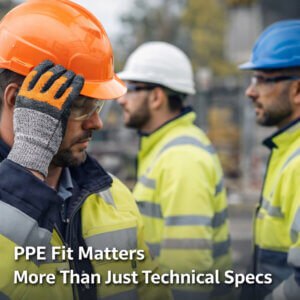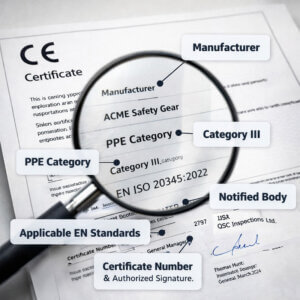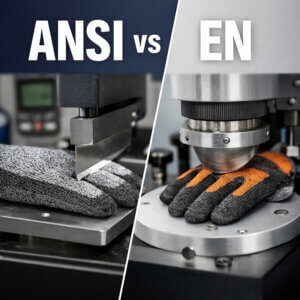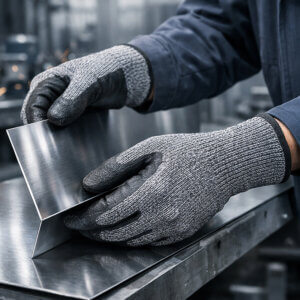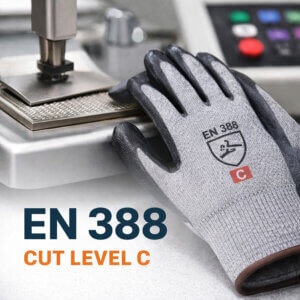In today’s diverse workplace environments, Personal Protective Equipment (PPE) is essential for ensuring employee safety. The type of PPE required varies significantly depending on the industry and the specific hazards faced. In this comprehensive guide, we’ll explore the essential PPE needs of various sectors, helping you understand which protective gear is vital for your workplace safety.
1. PPE for Construction Industry
The construction industry is notorious for its high-risk environment, exposing workers to hazards such as falling objects, heights, and heavy machinery. Here are the key types of PPE essential in construction:
- Hard Hats: Protect against head injuries from falling debris.
- Safety Goggles: Shield eyes from dust, debris, and chemical splashes.
- High-Visibility Vests: Ensure workers are easily seen, especially in low-light conditions.
- Safety Harnesses: Essential for fall protection when working at heights.
- Steel-Toe Boots: Protect feet from heavy objects and provide slip resistance.
Why It Matters: In construction, the right PPE can mean the difference between life and death. For example, a large construction site implemented a comprehensive PPE program, including mandatory hard hats and high-visibility clothing. As a result, they reduced workplace injuries by 50%. Investing in quality protective gear not only complies with safety regulations but also enhances productivity by reducing downtime from injuries.
2. Essential PPE for Manufacturing Industry
In manufacturing, workers face risks from machinery, chemicals, and noise. Proper PPE is vital for safeguarding their health and well-being. Essential PPE includes:
- Cut-Resistant Gloves: Protect hands when handling sharp objects.
- Chemical-Resistant Gloves: Necessary for working with hazardous materials.
- Ear Protection: Earplugs or earmuffs are crucial in high-noise environments to prevent hearing loss.
- Face Shields: Protect the face from flying particles and splashes during machining or welding operations.
- Respirators: Filter harmful dust, fumes, and vapors in poorly ventilated areas.
Why It Matters: Manufacturing environments are often fast-paced and hazardous. A manufacturing company that introduced cut-resistant gloves and respirators reported a 30% decrease in workplace injuries and improved employee satisfaction. The right PPE not only protects workers but also helps maintain compliance with occupational health and safety standards.
3. PPE Needs in the Healthcare Industry
The healthcare sector requires specialized PPE to protect both healthcare professionals and patients from infections and other hazards. Key PPE includes:
- Surgical Masks/N95 Respirators: Essential for preventing the spread of airborne pathogens.
- Protective Gowns: Safeguard against contamination during procedures.
- Medical Gloves: Prevent contact with bodily fluids and pathogens.
- Face Shields or Goggles: Protect the eyes and face from splashes and droplets.
Why It Matters: In healthcare, effective PPE is vital for infection control and patient safety. For instance, a hospital that increased its use of N95 masks and protective gowns during flu season saw a 40% reduction in infections. This not only protects healthcare workers but also enhances patient safety.
4. PPE for Oil and Gas Industry
The oil and gas industry presents unique challenges that necessitate specific PPE requirements. Essential equipment includes:
- Flame-Resistant Clothing: Protects workers from fire hazards associated with flammable materials.
- Hard Hats: Essential for head protection in areas with potential overhead hazards.
- Respiratory Protection: Necessary in environments with toxic gases or vapors.
Why It Matters: The oil and gas industry has some of the highest risks for workers. One oilfield company that provided flame-resistant clothing and respiratory protection reported a 60% reduction in fire-related incidents, improving overall worker confidence and safety.
5. Agricultural Industry PPE Requirements
Agricultural workers face various hazards, including chemicals, heavy machinery, and extreme weather conditions. Key PPE includes:
- Protective Gloves: Used when handling pesticides and fertilizers.
- Dust Masks: Protect against inhaling dust and chemicals.
- Rubber Boots: Essential for protecting feet from water and chemical exposure.
- Wide-Brimmed Hats and Sunscreen: Protect against sun exposure during long hours outdoors.
Why It Matters: Agriculture often involves long hours in harsh conditions. A farming operation that implemented the use of chemical-resistant gloves and dust masks saw a 25% decrease in health issues among workers, while also increasing crop production efficiency.
Conclusion: The Importance of PPE Across Industries
Understanding the specific PPE needs of your industry is crucial for maintaining a safe working environment. Each sector presents unique hazards, and having the right protective equipment is essential for minimizing risks and ensuring employee safety. As a trusted PPE supplier, we are committed to providing high-quality equipment tailored to meet the demands of various industries.
By investing in the appropriate PPE, businesses not only comply with safety regulations but also foster a culture of safety that can lead to improved morale and productivity. If you’re unsure about the PPE your workplace requires, don’t hesitate to reach out for expert advice tailored to your specific needs.
Common Misconceptions About PPE
-
Myth: PPE is only necessary for high-risk jobs.
- Fact: All workplaces can benefit from PPE to mitigate risks and protect workers.
-
Myth: Once you have PPE, you don’t need to think about safety.
- Fact: PPE is just one part of a comprehensive safety strategy that includes training and proper use.
FAQs About PPE
-
What types of PPE do I need for my industry?
- The required PPE varies by industry. Consult safety guidelines specific to your sector for detailed requirements.
-
How often should PPE be inspected?
- PPE should be inspected before each use and regularly maintained to ensure its effectiveness.
-
Where can I buy quality PPE?
- As a trusted PPE supplier, we offer a wide range of high-quality protective equipment tailored to your industry needs.

